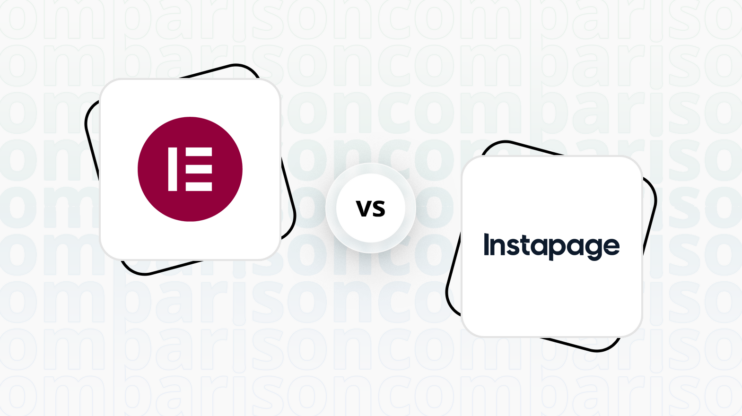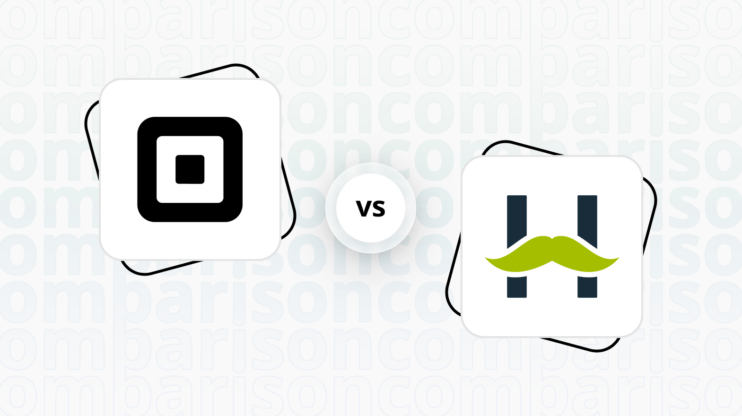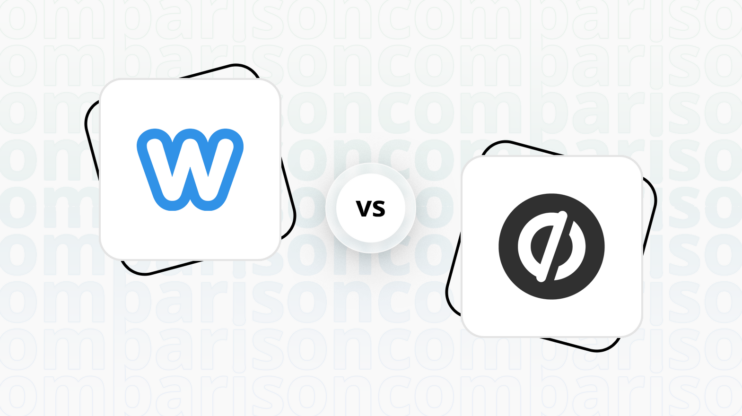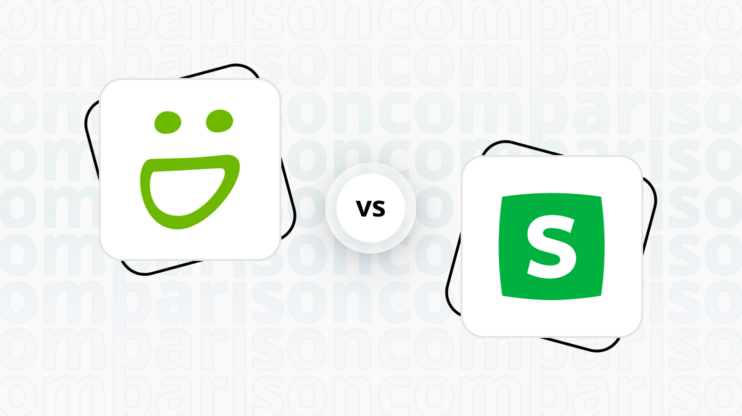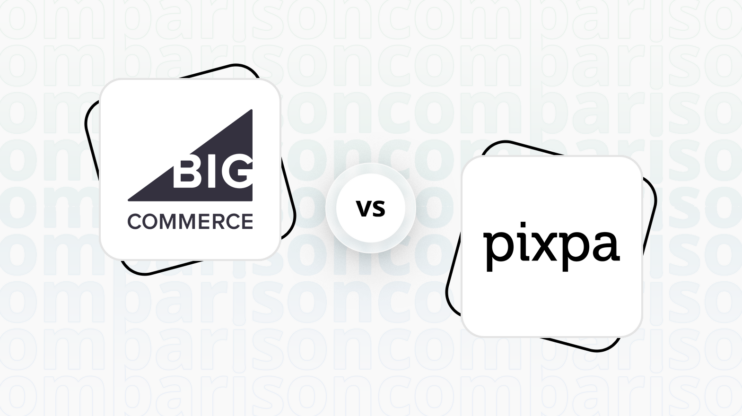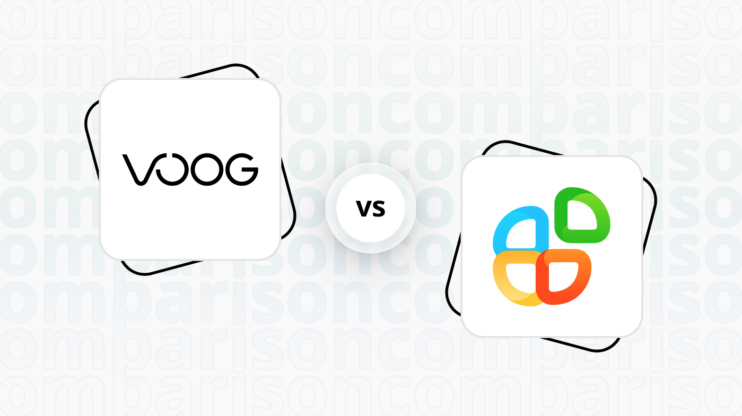Final verdict
BlueHost and Webnode both offer unique advantages, but they cater to different user needs and preferences.
-
BlueHost (Overall Grade: 6.8/10)
is a versatile platform that combines web hosting with a user-friendly website builder. Its integration with WordPress provides extensive customization options and access to thousands of themes and plugins. BlueHost excels in hosting quality, security, and marketing features, making it a strong choice for users seeking a comprehensive solution for both website building and hosting. However, its higher cost and steeper learning curve may be a consideration for some users. -
Webnode (Overall Grade: 6.5/10)
is ideal for beginners and those looking for a simple, quick way to create a website. Its drag-and-drop interface and variety of templates make it easy to use, even for those with no coding experience. Webnode offers affordable pricing and a range of basic ecommerce features, making it suitable for small businesses and personal websites. However, it lacks the advanced customization and scalability options that BlueHost provides.

|

|
|
|---|---|---|
|
Design functionalities & templates |
7.2 |
7.1 |
|
Ease of use |
8.2 |
8.0 |
|
Ecommerce |
6.8 |
6.3 |
|
Website Editors |
7.3 |
7.3 |
|
Product testing options |
6.2 |
5.3 |
|
Price |
7.2 |
7.7 |
|
Hosting quality |
8.0 |
6.3 |
|
Website speed optimization |
6.5 |
6.1 |
|
Plugins and integrations |
9.1 |
6.8 |
|
Marketing features |
7.3 |
5.5 |
|
Customer support |
7.6 |
5.3 |
|
Security |
8.3 |
7.7 |
|
AI capabilities |
1.5 |
5.3 |
|
User Management |
4.4 |
6.9 |
Best for ecommerce
 6.8
6.8
 6.3
6.3
Verdict
: BlueHost and Webnode both offer solid ecommerce features, but BlueHost’s integration with WooCommerce and robust customization options make it a better choice for more complex ecommerce needs. Webnode, on the other hand, is ideal for beginners or those with simpler requirements.
-
BlueHost
: BlueHost provides a comprehensive suite of ecommerce tools, including product listings, secure payment gateways, and inventory management. Its integration with WooCommerce allows for extensive customization and scalability, making it suitable for businesses looking to grow. However, it lacks native POS capabilities, which might be a limitation for some users. -
Webnode
: Webnode offers a user-friendly interface with essential ecommerce features like shipping options, payment gateway integrations, and order management. It is perfect for beginners or small businesses looking for a straightforward solution. However, it may not be as flexible or scalable as BlueHost for more complex ecommerce needs.
Best for informational & business websites
 7.5
7.5
 7.2
7.2
Verdict
: BlueHost slightly edges out Webnode for informational and business websites, thanks to its robust integration with WordPress and a wider range of customization options.
-
BlueHost
: BlueHost is a comprehensive web hosting service that also offers a user-friendly website builder. Its integration with WordPress provides a vast array of themes and plugins, making it highly customizable. The drag-and-drop interface is accessible for users with little to no coding experience, and the variety of hosting plans cater to different needs, from personal blogs to large online businesses. With a score of 7.5, BlueHost is a versatile option for creating professional-looking informational websites. -
Webnode
: Webnode is a straightforward website builder that allows users to create websites without any coding knowledge. It uses a drag-and-drop interface and offers a variety of customizable templates. While it is user-friendly and suitable for beginners, it may limit customization options for those seeking more specific design visions. Webnode scored 7.2, making it a good option for quickly creating simple informational websites.
Detailed comparison
Design functionalities & templates
Design FunctionalitiesRepresents how well each platform allows for creative design and customization of websites.Score Components:
- Template Variety (30%): Range and quality of design templates.
- Customization (30%): Flexibility and options for design alterations.
- User Interface (20%): Ease and intuitiveness of the design process.
- Responsiveness (10%): Adaptability to different devices and screen sizes.
- Innovation (10%): Unique design features and tools.
 7.2
7.2
 7.1
7.1
🏆
Winner: BlueHost.
Although both platforms offer a variety of templates and design options, BlueHost’s integration with WordPress provides a wider range of customization options and access to thousands of themes and plugins.
BlueHost’s WordPress website builder offers over 300 pre-installed templates and designs to cater to the diverse needs of its users, ensuring that there’s something for everyone, regardless of the niche or industry. These templates are designed to be responsive and SEO-friendly, enhancing the user experience and visibility of the websites.
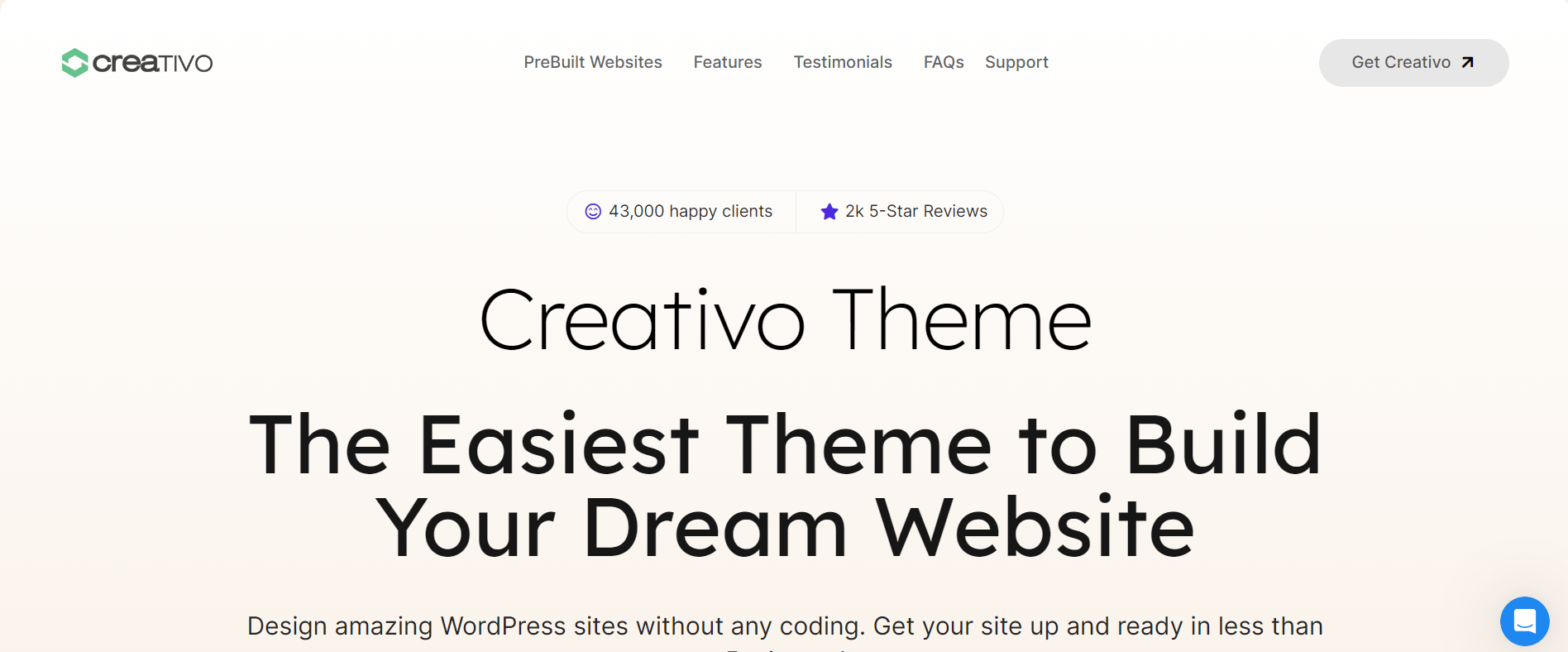
On the other hand, Webnode offers a variety of website templates designed for different purposes, from business and portfolios to restaurants and travel. These templates are customizable and responsive, ensuring they display well on any device.
Get a head start on website creation with AI
Create a custom website tailored to your business needs 10X faster with 10Web AI Website Builder!
Ease of use
Ease of useReflects the platform’s overall user-friendliness.Score
Components:
- Learning curve (40%): Quickness and ease of getting started.
- Interface design (30%): Simplicity and intuitiveness of layout.
- User guidance (20%): Quality of tutorials and support.
- Flexibility (10%): Adaptability to various user skills.
 8.2
8.2
 8.0
8.0
🏆 Winner: BlueHost
. Scoring 8.2, BlueHost edges out Webnode, which scored 8.0, in terms of ease of use. BlueHost’s user-friendly website builder, designed for simplicity, makes it highly accessible for users of all skill levels. Webnode, while also user-friendly, may limit customization options for those seeking more specific design visions.
Learning Resources
🏆 Winner: BlueHost
. BlueHost’s WordPress Academy offers a wide range of free, comprehensive learning resources developed by WordPress experts, aimed at users of all levels. Webnode, on the other hand, offers a variety of learning resources, but the quality and accessibility of these resources may vary.
For ecommerce
EcommerceMeasures the platform’s effectiveness in supporting online business activities.Score Components:
- Ecommerce themes and templates (20%): Variety and design of templates.
- Product management (25%): Ease of managing and organizing products.
- Payment options (25%): Variety and convenience of payment methods.
- Ecommerce features (20%): Features for managing an ecommerce store.
- Integration (10%): Compatibility with external e-commerce tools and services.
 6.8
6.8
 6.3
6.3
When it comes to ecommerce, both BlueHost and Webnode offer a range of features to help users build and manage online stores. However, there are some differences in their offerings that could make one a better fit for your needs than the other.

|

|
|
|---|---|---|
|
Ecommerce themes and templates |
6.5 |
6.5 |
|
Product page customization |
7.0 |
7.0 |
|
Payment processing and commissions |
6.8 |
6.8 |
|
POS capabilities |
0.0 |
4.0 |
|
Payment gateways |
7.5 |
7.0 |
|
Product numbers |
6.0 |
5.5 |
|
Additional ecommerce features |
6.5 |
6.0 |
BlueHost ecommerce features:
- Product Listings
- Shopping Carts
- Secure Payment gateways
- Shipping Options and Tax Calculations
- Inventory Management
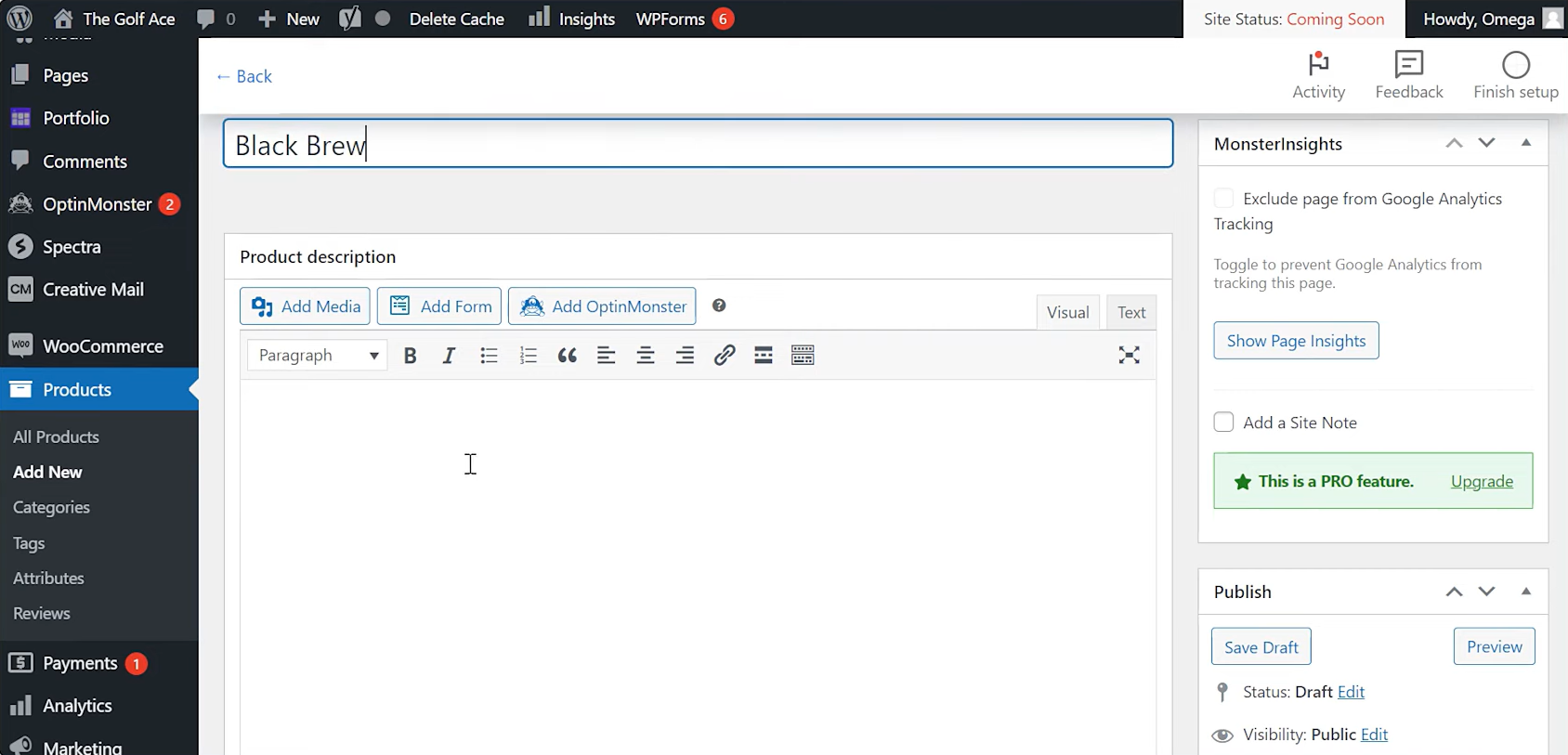
Webnode ecommerce features:
- Shipping options
- Payment gateway integrations
- Order management
- Coupons and discounts
Ecommerce themes & templates
BlueHost’s website builder for eCommerce provides a selection of specific templates designed to streamline the creation of online stores. These templates are optimized for sales, featuring designs that accommodate product galleries, shopping carts, and checkout processes. On the other hand, Webnode offers ecommerce-specific templates designed for creating online stores. These templates typically come with features such as product showcasing, shopping cart functionality, support for various payment gateways, and customization options.
Product page customization
BlueHost’s website builder offers robust customization features for product pages, allowing users to tailor product details like titles, descriptions, images, and pricing according to their preferences. It supports the creation of product variants and options, facilitating the sale of items with multiple choices such as size, color, and material directly from the product page. Webnode provides users with extensive customization options for product pages, allowing for the creation of visually appealing and informative displays. Through customizable content blocks, product images and galleries, and tailored product descriptions, users can effectively showcase their products.
Payment processing
BlueHost doesn’t directly support numerous payment gateways. However, it does integrate with WooCommerce, a platform that facilitates integration with various payment gateways like PayPal and Stripe. While BlueHost doesn’t impose transaction fees, the payment gateways might. Furthermore, it lacks Point of Sale (POS) capabilities. Webnode website builder supports various payment gateways, including popular options like PayPal and Stripe, for online transactions. While Webnode itself doesn’t charge commissions on transactions, payment gateways may have their own fee structures. Webnode primarily focuses on facilitating online transactions and doesn’t provide native POS capabilities, although integration with third-party POS solutions may be possible.
Considering the features, availability, cost, and flexibility, both BlueHost and Webnode offer a range of ecommerce features. However, BlueHost’s integration with WooCommerce and its robust customization features may make it a more suitable choice for users with specific ecommerce needs. On the other hand, Webnode’s simplicity and ease of use may make it a better fit for beginners or those with simpler ecommerce requirements.
Website Editors
Website EditorsEvaluates the platforms’ website building and editing capabilities.Score Components:
- Customization tools (40%): Range and power of editing features.
- Editor usability (30%): User experience within the editor.
- Design flexibility (20%): Freedom in layout and design changes.
- Update and maintenance ease (10%): Simplicity of updating and maintaining the site.
 7.3
7.3
 7.3
7.3
🏆
Winner: Tie
. Both BlueHost and Webnode scored 7.3 for their website editors, indicating a similar level of quality and functionality.
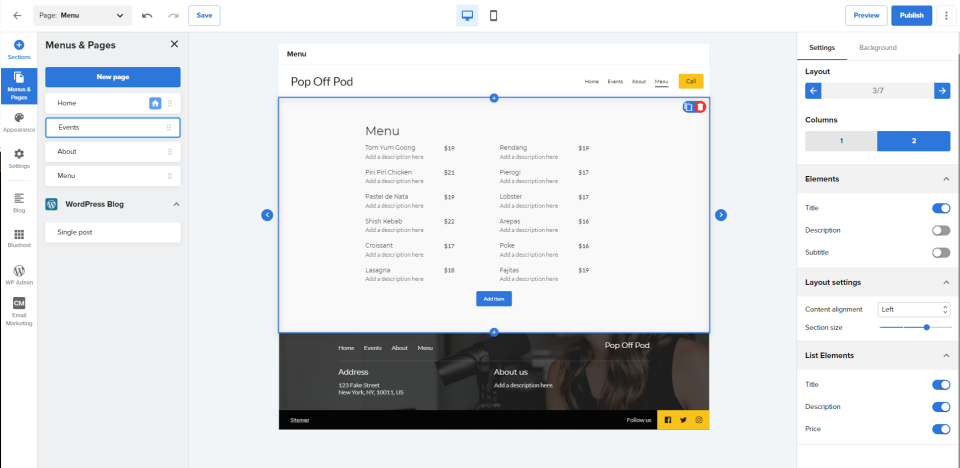
BlueHost’s website builder editor is designed for ease of use, catering to both beginners and advanced users. It offers a section based drag-and-drop interface, allowing users to easily add, remove, and customize elements on their website without needing to code. Users can choose from a wide range of templates and customize them to fit their brand, including adjusting layouts, colors, and fonts. Additionally, the editor provides access to stock photos, SEO tools, and responsive design features, ensuring websites look great on all devices and can rank well on search engines.
Webnode’s website builder features a user-friendly drag-and-drop interface with customizable templates, enabling users to easily create professional-looking websites without coding skills. The editor offers responsive design capabilities and multilingual support, catering to diverse audiences across different devices and languages. Built-in features such as SEO tools, e-commerce functionality, and analytics integration empower users to optimize their websites for search engines, sell products online, and track performance metrics effectively. Overall, Webnode provides a comprehensive solution for individuals and businesses to create and manage their online presence efficiently.
Mobile editor/app
 5.0
5.0
 5.5
5.5

🏆
Winner: Webnode
. Both BlueHost and Webnode lack dedicated mobile editor apps, but they allow users to edit their websites through mobile browsers. This approach comes with certain limitations for both platforms, potentially affecting the ease of use and functionality when making on-the-go adjustments.
BlueHost’s mobile editing capabilities are integrated into its mobile browser version, which may present some challenges in terms of usability and feature access. Users can still perform basic edits, but the experience might not be as seamless as using a dedicated app.
Webnode also offers mobile browser-based editing, with similar limitations. However, Webnode edges out BlueHost slightly due to its more user-friendly interface and better overall mobile editing experience, as reflected in its higher score.
In summary, while neither platform excels in mobile editing, Webnode provides a marginally better experience for users looking to make quick edits on their mobile devices.
Product testing options
Product Testing OptionsAssesses the options for trying out platform features before commitment.Score Components:
- Trial quality (40%): Extent and usefulness of the trial or free version.
- Feature accessibility (30%): How many features are available to test.
- Trial duration (20%): Length of the trial period.
- Ease of transition (10%): Smoothness of moving from trial to paid plans.
 6.2
6.2
 5.3
5.3
Overall Result
:
BlueHost wins
. BlueHost scores 6.2 in product testing options, while Webnode scores 5.3. BlueHost does not offer a free or trial version, but it allows testing of premium features within a 30-day refundable period. Webnode, on the other hand, offers a free version and some premium features can be tested with this plan. However, neither BlueHost nor Webnode offer a trial version.

|

|
|
|---|---|---|
|
Free Plan |
No |
Yes |
|
Trial Duration |
No | No |
|
Testing Premium Features |
Possible within 30-day refundable period |
Some features can be tested with the free plan |
Price
PriceLooks at the cost-effectiveness and value for money of each platform.Score Components:
- Plan value (40%): What each pricing tier offers.
- Transparency and clarity (30%): Clearness of pricing structures.
- Flexibility of plans (20%): Range of options to suit different budgets.
- Hidden costs (10%): Additional expenses not included in the plan.
 7.2
7.2
 7.7
7.7
Webnode offers more affordable options, but BlueHost provides a wider range of features and storage options.

|

|
|
|---|---|---|
|
$0-$10 |
No offering at this amount. |
LIMITED ($5.50/month): Basic plan, 200 MB storage, attach domain, website statistics, up to 5 form fields, last 30 days backup. This plan allows to manage 1 website with unlimited number of pages. Value for Price: 3.0 |
|
$10-$20 |
No offering at this amount. |
MINI ($10.00/month): All essentials for a simple website, 1 GB storage, 3 GB bandwidth, website statistics, 1 email account. This plan allows to manage 1 website with unlimited number of pages. Value for Price: 4.5 |
|
$20-$30 |
Basic ($15.99/month): Made for a simple website or blog, 1 website with 10GB SSD storage, Free CDN, Free Domain 1st year, Managed WordPress Hosting, Free SSL 1st year and Chat Support Value for Price: 6.5 |
STANDARD ($16.90/month): For starting an online store, 3 GB storage, 10 GB bandwidth, 20 email accounts, basic store features. This plan allows to manage 1 website with unlimited number of pages. Value for Price: 6.0 |
|
$30-$35 |
Choice Plus ($27.99/month): Ideal for multiple sites needing storage, security, backups, 3 websites with 40GB SSD storage, Free CDN, Free Domain 1st year, Managed WordPress hosting, Free SSL, Free Domain privacy 1st year, Malware scanning, daily site backups are free for the 1st year with the purchase of a 12 or 36-month package. Otherwise, users are required to pay a one-time fee of $35.88 for backup services. Value for Price: 7.5 |
PROFI ($26.50/month): Professional websites, 7 GB storage, unlimited bandwidth, 100 email accounts, full online store capabilities. This plan allows to manage 1 website with unlimited number of pages. Value for Price: 7.5 |
|
$35+ |
Online Store ($32.99/month): Great for all online selling, built-in eCommerce tools, 3 websites with 40GB SSD storage, Free CDN, Free Domain 1st year, Managed WordPress hosting, Free Domain privacy 1st year, Malware Scanning, Exclusive Theme Store, Store Analytics, Unlimited products, Secure Payment options, Bookings & appointments, Shipping labels, product search and filtering, daily site backups are free for the 1st year with the purchase of a 12 or 36-month package. Otherwise, users are required to pay a one-time fee of $35.88 for backup services. Value for Price: 8.5 |
BUSINESS ($34.90/month): Comprehensive e-commerce, 15 GB storage, unlimited bandwidth, 1000 email accounts, advanced online store features. This plan allows to manage 1 website with unlimited number of pages. Value for Price: 8.5 |
location. As a result in rare cases the prices displayed here can differ from the ones you see on their
websites.
Hosting quality
Hosting
qualityExamines the reliability and performance of the hosting solutions.Score Components:
- Uptime (40%): Consistency and reliability of website availability.
- Speed (30%): Loading times and performance.
- Bandwidth and storage (20%): Sufficiency of resources provided.
- Data centers (10%): Quality and distribution of hosting infrastructure.
 8.0
8.0
 6.3
6.3
🏆
Winner: BlueHost
BlueHost offers a range of hosting options with features designed to support websites at various stages of growth, from shared to dedicated hosting. Their hosting plans include technologies to ensure fast load times, such as SSD storage, CDN services, and Cloudflare integration. On the other hand, Webnode offers hosting with from 1GB to unlimited bandwidth and automated backups on higher plans. However, Webnode does not disclose its hosting type or the locations of its data centers, which could be a concern for some users.

|

|
|
|---|---|---|
|
Do they offer hosting? |
Yes, offers a range of hosting options with features designed to support websites at various stages of growth, from shared to dedicated hosting. |
Yes, with from 1GB to unlimited bandwidth and automated backups on higher plans. |
|
Data Centers: |
6 data centers: Orem and Provo, Shanghai, Mumbai and Hong Kong, London |
Webnode does not disclose the locations of its data centers |
|
Type of hosting: |
Managed WordPress Hosting |
Webnode does not disclose its hosting type |
|
Uptime: |
99.9% |
99.6% |
|
Uptime Guarantee: |
Yes, 99.9% |
No |
Website Speed Optimization
Website Speed OptimizationEvaluates optimization of website loading timesScore Components:
- PageSpeed Score (30%): Google’s score indicating performance optimization.
- Loading Time (30%): The average time until a website is fully interactive.
- Mobile Optimization (15%): Optimization effectiveness for mobile devices.
- Resource Optimization (15%): Optimizing images, scripts, and other heavy resources.
- CDN Usage (10%): Use of CDN to enhance speed across geolocations.
 6.5
6.5
 6.1
6.1
🏆 Winner: BlueHost
Both BlueHost and Webnode have strategies in place for website speed optimization, but BlueHost takes the lead with its emphasis on Core Web Vital improvements.

|

|
|
|---|---|---|
|
Focus |
CDN, Server Optimization |
Code Minification, Image Optimization, Caching |
|
Performance Tools |
Google Lighthouse, PageSpeed Insights |
Google PageSpeed Insights |
|
Key Strategies |
CDN, Server Optimization |
Code Minification, Image Optimization, Caching |
|
Load Times |
Varies widely, depending on optimization and website complexity |
Varies depending on optimization |
|
Page Speed Scores Range |
Varies widely, depending on optimization and website complexity |
Varies depending on optimization |
|
Core Web Vitals Improvement |
Emphasis on LCP, FID, CLS improvements |
No information provided |
BlueHost, a comprehensive web hosting service, also offers a user-friendly website builder. It integrates seamlessly with WordPress, allowing for a wide range of customization options and access to thousands of themes and plugins. BlueHost’s approach to enhancing site speed includes server optimization and the use of a Content Delivery Network (CDN). It also places a strong emphasis on improving Core Web Vitals, specifically Largest Contentful Paint (LCP), First Input Delay (FID), and Cumulative Layout Shift (CLS).
On the other hand, Webnode, a website builder that allows users to create a website without needing any coding knowledge, focuses on code minification, image optimization, and caching for speed optimization. However, it does not provide any information on their Core Web Vital improvements. This lack of transparency gives BlueHost the edge in this comparison.
Get a head start on website creation with AI
Create a custom website tailored to your business needs 10X faster with 10Web AI Website Builder!
Plugins and integrations
Plugins and integrationsMeasures the range and effectiveness of additional plugins and integrations.Score Components:
- Variety of options (40%): Range of available add-ons.
- Integration smoothness (30%): Ease of integrating plugins into the site.
- Quality of plugins (20%): Functionality and reliability of the options.
- Custom integration capabilities (10%): Support for custom or third-party integrations.
 9.1
9.1
 6.8
6.8
🏆 Winner: BlueHost.
With a score of 9.1, BlueHost takes the lead in this category. Its seamless integration with WordPress opens up a vast ecosystem of plugins and extensions, significantly expanding the functionality of the website builder. Webnode, scoring 6.8, also supports a variety of plugins developed by Elfsight, but the sheer volume and versatility of WordPress plugins give BlueHost the edge.
It’s worth noting that both platforms offer a mix of free and premium plugins, allowing users to tailor their sites based on their specific needs and goals.

Marketing Features
Design FunctionalitiesRepresents how well each platform allows for creative design and customization of websites.Score Components:
- Template Variety (30%): Range and quality of design templates.
- Customization (30%): Flexibility and options for design alterations.
- User Interface (20%): Ease and intuitiveness of the design process.
- Responsiveness (10%): Adaptability to different devices and screen sizes.
- Innovation (10%): Unique design features and tools.
 7.3
7.3
 5.5
5.5
🏆
Overall Winner: BlueHost
. BlueHost stands out for its integration with WordPress, which offers a wide range of marketing tools. Webnode, while offering a good range of basic features, lacks the advanced capabilities provided by BlueHost.

|

|
|
|---|---|---|
|
SEO Tools |
✓ |
✓ |
|
Email Marketing |
✓ |
✓ |
|
Blogging |
✓ |
✓ |
|
Social Media Integration |
✓ |
✓ |
|
Analytics and Reporting |
✓ |
✓ |
|
Ads and Promotions |
✓ |
✓ |
Customer Support
Customer supportEvaluates the quality and availability of support options.Score Components:
- Response time (40%): Speed of support responses.
- Support quality (30%): Effectiveness and helpfulness of the support.
- Availability (20%): Range of support channels (phone, chat, email).
- Resource richness (10%): Quality of self-help and educational materials.
 7.6
7.6
 5.3
5.3
🏆 Winner: BlueHost
. In the BlueHost vs Webnode comparison, BlueHost takes the lead with its 24/7 customer support availability. BlueHost offers multiple support channels, including chat and phone support, ensuring users can get help whenever they need it. The technical assistance is available from 7 a.m. to midnight EST, providing a broad window for resolving more complex issues.
Webnode, on the other hand, offers customer support in over 20 languages but is limited to weekdays. The primary support channel is email, with a 24-hour response time, and premium users get priority phone support. However, the lack of live chat and limited phone support availability can be a drawback for users needing immediate assistance.
Security
SecurityLooks at the platforms’ security measures and data protection.Score Components:
- Data protection (40%): Safeguards for user and customer data.
- SSL and encryption (30%): Implementation of secure connections.
- Compliance (20%): Adherence to industry security standards.
- Regular updates (10%): Frequency of security updates and patches.
 8.3
8.3
 7.7
7.7
🏆
Winner: BlueHost
. BlueHost’s commitment to security is evident in its robust measures, including SSL certificates, regular backups, and additional features like SiteLock for malware scanning. Compliance with data protection regulations and a commitment to privacy are central to their service, ensuring users’ data is handled securely.
Webnode, while offering a variety of security measures, falls slightly short in comparison to BlueHost. It does provide a Premium Site Security add-on with IP Filters, Form Protection, and Malware Scanning for users with a Premium Plan, and all Webnode sites are automatically secured with HTTPS. However, BlueHost’s comprehensive security measures and higher security score give it the edge in this comparison.
AI Capabilities
AI capabilitiesMeasures the effectiveness of AI-driven features and tools.Score Components:
- Automation efficiency (40%): Impact of AI on streamlining processes.
- Personalization (30%): AI-driven customization for users or customers.
- AI-Assisted design (20%): Role of AI in website design and functionality.
- Data analysis (10%): Use of AI in interpreting user data and analytics.
 1.5
1.5
 5.3
5.3

|

|
|
|---|---|---|
|
AI Builder |
|
Webnode AI builder generates custom websites based on user needs |
|
AI Ecommerce features |
|
|
|
AI Content Generation |
Possible through WordPress plugins |
|
|
Additional AI features |
|
|
🏆 Winner: Webnode
. With a score of 5.3, Webnode’s AI capabilities are limited but still superior to BlueHost’s. Webnode’s AI builder uses artificial intelligence to generate a custom website that aligns with the user’s needs, including creating text content and sourcing relevant images. This user-friendly platform offers a simple and engaging approach to website building.
BlueHost, scoring 1.5, does not have any built-in AI features. However, it supports integration with WordPress plugins, some of which offer AI capabilities. This allows for potential AI content generation, but it requires additional setup and is not a native feature of the platform.
User Management
User ManagementAssesses the platforms’ capabilities in managing user roles, permissions, and accessibility.Score Components:
- Role Customization (40%): Flexibility in creating and defining user roles and
permissions. - Ease of Management (30%): User interface and tools for managing users.
- Access Control (20%): Effectiveness of access control measures for different user
levels. - Scalability (10%): Ability to manage a growing number of users efficiently.
 4.4
4.4
 6.9
6.9
🏆 Winner: Webnode
. Both BlueHost and Webnode support multi-user management, but Webnode provides more detailed information about user roles and permissions.
- BlueHost supports multi-user management, but there’s no specific mention about the number of users or their roles and permissions.
- Webnode allows multiple users to manage and edit a website, with the exact number varying depending on the subscription plan. The free version of Webnode provides limited user access for management and editing, while premium plans offer more flexibility, including the ability to add multiple users with different roles and permissions.
Webnode User Roles and Access Levels:
| Role | Description | Access Highlights |
|---|---|---|
| Website Owner | The individual or entity that owns the Webnode website. | Full access: can modify site structure, design, content, and manage user roles. |
| Administrator | Users with administrative privileges assigned by the website owner. | Nearly full access, including content management, and some settings adjustments. |
| Editor | Users tasked with creating, editing, and publishing content. | Access to add and edit content, blog posts, and pages, but cannot alter design. |
| Contributor | Users who can contribute content but cannot publish it. | Can draft content but need approval from an Editor or Administrator to publish. |
| Viewer/Visitor | Individuals who visit the website without any editing permissions. | Can view the public website and interact through comments or contact forms. |
| E-commerce Manager | Specifically for websites with an e-commerce component, managing products. | Can add, edit, and manage products, orders, and customer interactions. |
Additional Features

|

|
|
|---|---|---|
|
SSL Certificate |
✓ |
✓ |
|
Custom Domain |
✓ |
✓ |
|
Free Custom Domain Included |
✓ |
✓ |
|
International Domains |
✓ |
✓ |
|
Mobile Responsive |
✓ |
✓ |
|
Page Speed |
✓ |
✓ |
|
Website Builder Mobile App |
X |
X |
|
Convert a Website To An App |
X |
X |
|
Website Analytics |
✓ |
✓ |
|
Multilingual Sites |
X |
✓ |
|
Multiple Users |
✓ |
✓ |
User Feedback
Users appreciate BlueHost for its comprehensive free offerings, including SSL, subdomains, and custom email, along with additional services like free domain registration and CDN. The platform’s intuitive interface and user-friendly website builder cater to both beginners and experienced developers. However, concerns arise regarding the significant price increase upon renewal, limited free website templates, and unresolved technical issues with poor customer support, hindering users’ ability to effectively manage their websites and businesses. Addressing these concerns could enhance overall user satisfaction with BlueHost.
User feedback on Webnode highlights its ease of use, rapid website creation capabilities, and the wide range of templates available, making it a popular choice for individuals and businesses seeking an intuitive web development platform. While praised for its user-friendly interface and quick setup, including domain purchase and application, some users express a desire for more flexibility and customization options, especially in themes and e-commerce features. Comparatively, it falls short on advanced functionalities such as SEO tools and widgets offered by competitors like WordPress. Customer service experiences vary, with some users facing challenges in getting support for email hosting and analytics integration. Overall, Webnode is celebrated for its ability to accommodate users with little to no coding knowledge, offering an accessible solution for creating professional websites, though it may not fully meet the needs of those requiring more complex site features or dedicated customer support.
The making of this blog
We followed a clear, step-by-step process to write and research this article.
FAQ
Which platform is better for beginners, BlueHost or Webnode?
Can I use both BlueHost and Webnode for selling products internationally?
How do BlueHost and Webnode differ in terms of customization and design flexibility?
What are the major differences in pricing and value between BlueHost and Webnode?










